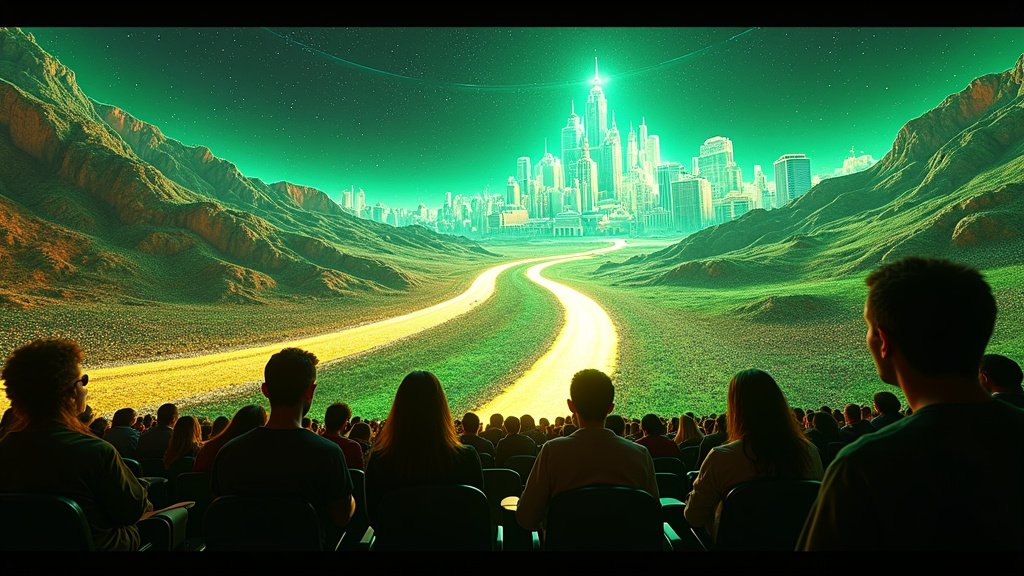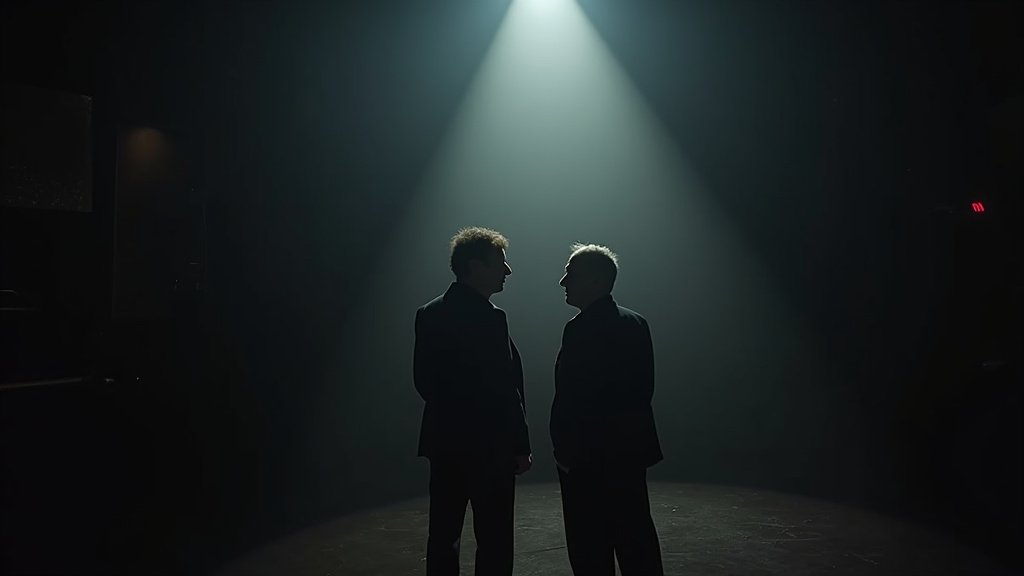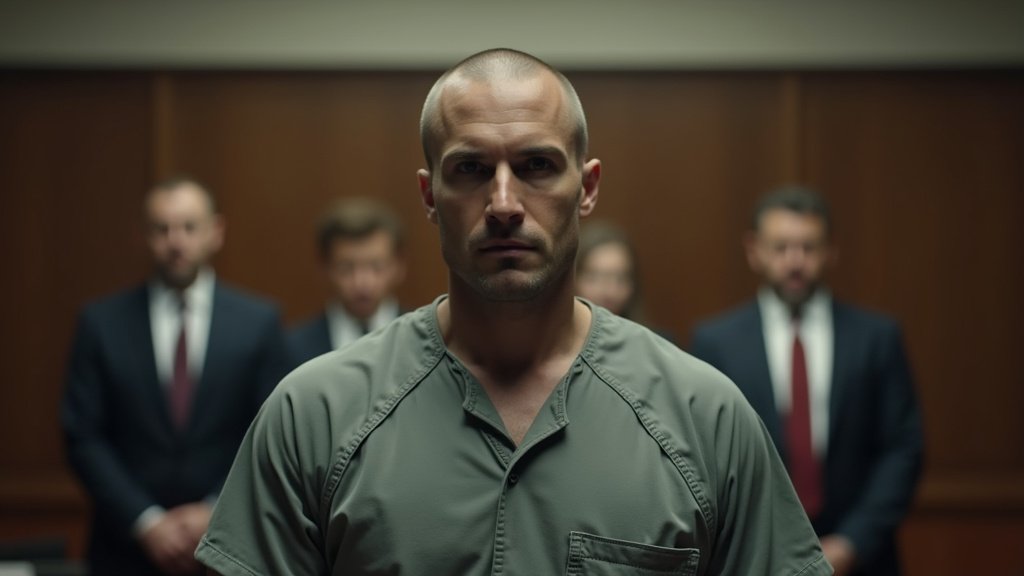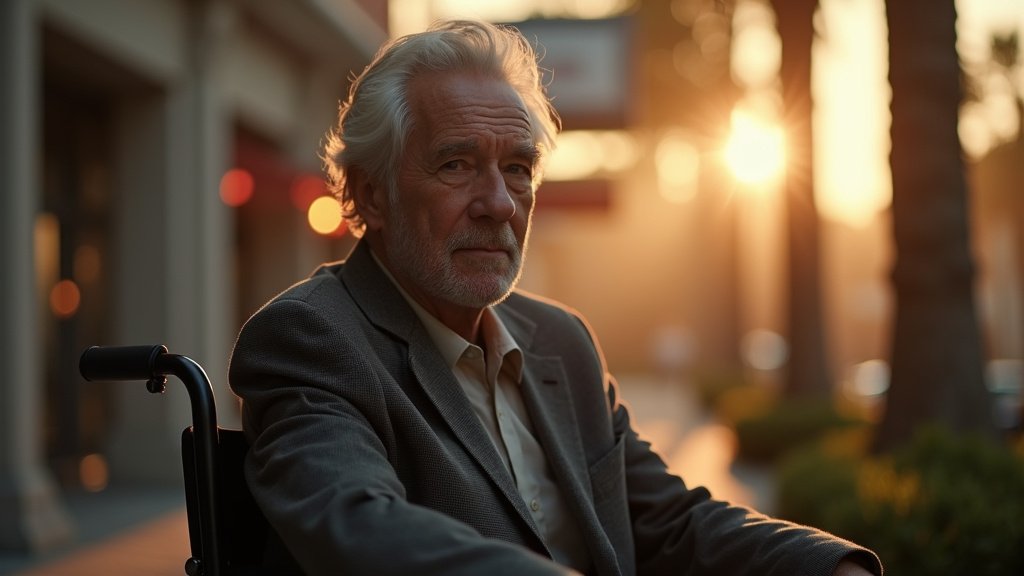In a move poised to reshape the entertainment landscape, the iconic 1939 film classic, “The Wizard of Oz,” is set to premiere at the Las Vegas Sphere on August 28, 2025. This ambitious project, leveraging cutting-edge artificial intelligence, transforms the beloved tale into an unparalleled immersive experience, stirring considerable buzz and marking what many industry experts consider a watershed moment for AI’s role in Hollywood storytelling. This isn’t just a remastering; it’s a complete cinematic reimagining designed to transport audiences into the heart of Oz like never before.
The Sphere: A Colossal Canvas for Immersion
The Las Vegas Sphere, which opened its doors in September 2023, has quickly established itself as a groundbreaking entertainment venue. Standing 366 feet tall and 516 feet wide, its interior boasts a colossal 160,000-square-foot LED screen, delivering visuals at an astounding 16K x 16K resolution. Beyond the visual spectacle, the Sphere integrates a suite of immersive effects: 750-horsepower fans, haptic seating in 10,000 of its 17,600 seats, environmental sensations, and Sphere Immersive Sound featuring 167,000 speakers. Previous productions, like U2’s residency and Darren Aronofsky’s “Postcard from Earth,” have already showcased the venue’s capabilities, but “The Wizard of Oz” at Sphere promises a new dimension of engagement for an existing, cherished film.
Reimagining a Classic with Generative AI
The monumental task of adapting the 35mm, 4:3 aspect ratio original film for the Sphere’s curved, wraparound display required innovative solutions, primarily from Google Cloud and Google DeepMind. Over two years, a team exceeding 2,000 individuals, including Google DeepMind researchers, visual effects artists, and academics, collaborated on this endeavor. They utilized advanced generative AI models, specifically fine-tuned Gemini models, Veo 2, and Imagen 3. These tools were deployed to achieve a tenfold improvement in resolution, intelligently upscale imagery to 16K, and perform “AI outpainting” – extending backgrounds and filling in gaps created by the original camera’s framing limitations. For instance, characters like Uncle Henry, who were off-screen in the original, can now be seamlessly integrated into expanded scenes, maintaining narrative continuity while offering a more comprehensive visual field. The original score has also been meticulously remastered and re-recorded to harness the Sphere’s advanced audio system, while actors’ vocal performances remain unaltered, preserving the film’s artistic integrity.
A Collaborative Vision and Strict Ethical Guidelines
This ambitious production is the result of a major partnership between Warner Bros. Discovery, Sphere Entertainment Co., Google, and immersive experiences specialist Magnopus. The project received the crucial sanction of Warner Bros. Discovery CEO David Zaslav, who, along with his studio chiefs and legal teams, established stringent guidelines for AI usage. These rules dictated that while Google could train its generative AI models on individual actors’ performances to reproduce them, the resulting data would remain the exclusive property of Warner Bros. Discovery and would not be incorporated into Google’s public AI models. Producer Jane Rosenthal, visual effects specialist Ben Grossmann, editor Jennifer Lame, and creative director Zack Winokur were key creative forces in this undertaking. Buzz Hays, leader of Google Cloud’s entertainment industry solutions group, views the project as a critical opportunity to demonstrate AI’s potential, suggesting it will redefine public perceptions of the technology in entertainment. Sphere Entertainment CEO James Dolan highlighted Google as the only partner capable of meeting the challenge on the world’s highest-resolution LED screen.
AI’s Impact on Hollywood and the Future of Entertainment
“The Wizard of Oz” at Sphere arrives amidst ongoing, often tense, discussions within Hollywood about AI’s profound impact on jobs, creative control, and intellectual property. Recent industry strikes, including those by the Writers Guild of America and SAG-AFTRA, saw unions advocating for and securing protections against the unchecked use of AI. Some visual effects companies initially approached for this project declined due to prevailing restrictions on AI work. However, this collaboration aims to showcase AI not as a replacement for human creativity but as a powerful tool for enhancement and innovation. Thomas Kurian, CEO of Google Cloud, described it as witnessing “the birth of a new form of entertainment.” The $80 million production, which has seen strong pre-sales of over 120,000 tickets at prices ranging from $100 to $500, signals a potentially lucrative new business model for leveraging existing intellectual property with advanced technology. This development is certainly trending in the news and is seen as a blueprint for high-margin experiential entertainment, pushing the boundaries of what’s possible in cinema and setting a precedent for how culturally significant media might be reimagined for future generations. While the hype around AI continues to grow, this project offers a tangible example of its transformative potential.
A New Era for a Timeless Classic
By taking a cinematic landmark born in the Technicolor revolution and re-engineering it for the AI age, “The Wizard of Oz” at Sphere represents a bold step forward. It demonstrates how technology can unlock new layers of immersion and connection with classic stories, creating experiences that were once unimaginable. This blend of heritage and innovation positions the Las Vegas Sphere as a crucible for the future of entertainment, inviting audiences to step into a beloved fantasy world with unprecedented sensory richness and redefine what a movie-going experience can truly be.





